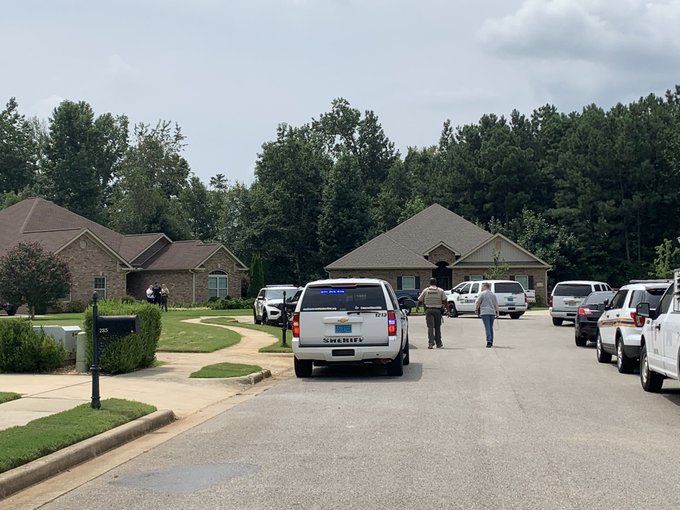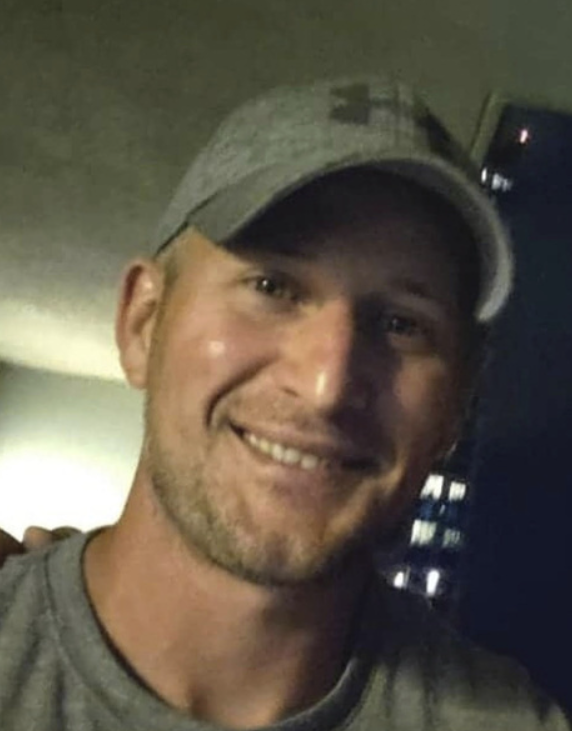When a ten-year-old boy is killed, a mother’s fight to protect her son turns into a crusade for justice.
Episode Media




Episode Sources
- Tate’s Legacy Foundation
- Tate Ethan Buening Obituary
- Victims identified in murder-suicide in Harvest
- Deputies identify father, son in Harvest murder-suicide
- GoFundMe account created for family of murder victim Tate Buening
- Madison County Sheriff’s Office identifies victims of Harvest child murder-suicide
- Endeavor Elementary School mourns death of 10-year-old Tate Buening
- Court documents detail custody battle before murder-suicide in Harvest
- Mother of slain 10-year-old warned courts of ex-husband’s threats
- Mom Fought for Custody, Warned Officials Dad was Dangerous Before He Killed 10-year-old Son: Court Docs
- Attorney: Backlog could be to blame in 10-year-old Harvest murder victim’s custody hearings delays
- Court documents reveal custody battle before Harvest murder-suicide
- Tate Buening’s Celebration of Life to be held Saturday at 5 p.m.
- Mother receives support from Alexander City community following murder-suicide
- ‘We lean on each other’: Prayer vigil held in Alex City for slain 10-year-old
- Family, friends remember 10-year-old Tate Buening
- I’m so happy I got to witness the smile and the love between them
- ‘It’s just a tragedy that shouldn’t have happened:’ Alexander City community mourns Tate Buening
- Hear Tate Buening’s mom plead for Madison Co. Sheriff’s Office help before finding him murdered
- Mother’s audio recording of deputy encounter from day of son’s murder-suicide
- Tate Buening: Audio Released After Dad Murders Boy Amid Custody Dispute, Mother Warned Police About Danger
- Mother of 10-year-old Harvest murder-suicide victim speaks out
- Murdered 10-year-old’s mother demands more judges for Madison County
- Mother of murdered 10-year old pleas for more judges in Madison County
- Mother of murder-suicide victim pushing for legal system reform
- Tate Buening’s mother sues ex-husband’s estate over murder-suicide
- Mother of Tate Buening files lawsuit against ex-husband’s estate
- Tate Buening’s mother wants to use ex-husband’s estate to honor her son
- Tate Buening’s mom files lawsuit following his death
- Tate Buening’s family, friends plant tree in his honor
- Madison County courts adding judge after murdered child’s mother calls for change
- Alabama commission moves vacant Jefferson County judgeship to understaffed Madison County courts
- Two mothers saw the system fail to protect their children from violent men. Now they’re trying to reform the system.
- A child dies every 6 days amid custody fights, family court lapses. Advocates want change.
- In Memory of Tate Buening – GoFundMe
- Center for Judicial Excellence
Episode Transcript
Welcome back to Bite-Sized Crime. As you may know, October is Domestic Violence Awareness Month. Domestic violence affects everyone in its path, and its impact can often have a rippling effect. This week I’m bringing you the story of a mother who fought so hard to protect her child from violence, but who was let down by the system. A warning before we begin: cases involving children are often the most difficult to process. This episode discusses sensitive topics, so listener discretion is advised.
On the morning of August 6, 2021, Kayla White made a desperate phone call to the sheriff’s office in Madison County, Alabama. She requested a welfare check at her ex-husband’s home in the town of Harvest. Their 10-year-old son Tate was with him, but Brian Buening was not responding to calls or texts, and Kayla was getting scared. Yes, their custody battle had been fraught with tension over the past few years, but it was more than that – Kayla knew how volatile Brian could be, and she feared that he would harm himself, or worse, their son.
However, the deputy who arrived didn’t seem concerned at all. Standing outside Brian’s home on Blue Creek Drive, the deputy told Kayla that this was a custody issue, not a criminal one. Kayla insisted that she was worried about her son, that she wanted to make sure he was okay. In an audio recording obtained by local news station WAAY, the deputy said, “This is a dispute between the two of you guys, if there was some way you couldn’t get over here or something we could do this, but…”
Kayla responded, “My concern right now is the safety, my concern is safety; I want to make sure he is alive and well ‘cause his dad is not always mentally stable.”
But the deputy was not moved, insisting that he couldn’t do anything. “You can walk up to the door. I can stand right here, okay? You are allowed on the property, right? You haven’t been trespassed, anything like that? Yeah, you can walk up and knock on the thing. I can’t get involved.”
Desperate to know if her son was safe no matter the risk to herself, Kayla walked up the drive to Brian’s house and knocked on the door. When there was no answer, she turned the doorknob and found it unlocked. Inside, all the lights in the house were off, and all she could hear was silence. Kayla turned and called out for the deputy to follow her as she slowly made her way through the house, terrified of what she might find.
Then, she reached her son’s bedroom. Tate lay motionless, his father beside him. They were both dead.
How had it come to this? How could it be that a bright, happy child like Tate was now gone? How could a father take the life of his own son?
This was not something that had happened suddenly in a single moment. It was the culmination of years of anger and violence.
Kayla Tate met Brian Buening when she was a student at the University of Alabama in the mid-2000s. Brian was a few years older than Kayla, a sergeant in the United States Army who specialized in explosive disposal. He had completed two tours in Iraq where he saw his fair share of combat, leaving him with severe PTSD and emotional distress.
A month after graduation, Kayla learned she was pregnant. She was overjoyed by the news, and she thought Brian would be too, but his behavior began to change. His temper boiled over more frequently, and he began to drink more heavily. He would also give Kayla the cold shoulder, and eventually he stopped communicating with her at all.
On February 24, 2011, Kayla gave birth to their son, Tate Ethan Buening. Kayla was immediately in love. Tate was a ray of sunshine, and Kayla was devoted to him.
But while Kayla thrived in her new role as Tate’s mother, her marriage to Brian was rapidly deteriorating. Brian had recently been honorably discharged from the Army, and he struggled to find his footing. His anger was escalating, and his mood swings were violent and unpredictable. Kayla was his frequent target, and she lived in constant fear of his rage.
On December 31, 2011, Brian, Kayla, and baby Tate had gone to a friend’s house to ring in the New Year. As the night progressed, Brian got more and more drunk, and Kayla knew they were in for a rough night. When they left the party shortly after midnight, Brian raged at her for paying more attention to their nine-month-old son than to the celebration.
When they got home, Brian snatched Tate out of his car seat and stormed into the house. Kayla rushed after him, afraid that he might do something to their infant son. Brian put Tate safely in his crib, but Kayla knew better than to feel relief. Brian grabbed his gun and pointed it at Kayla, shouting at her to move into their bedroom. Kayla obeyed, not wanting to antagonize him, but once she was inside, Brian shut the door behind her and locked it, barring it from the outside.
Now, Kayla was truly terrified, locked in her bedroom and separated from her baby. She tried to convince herself that everything would be okay, that Tate was safe in his crib, that Brian would calm down soon. She listened in horror as Brian screamed at her through the closed door, throwing things against the wall in his rage.
Suddenly, there was silence. Then, a shot rang out and a scream split the air.
Kayla summoned all her strength and managed to break down the bedroom door. When she finally broke free, she found Brian on the hallway floor, covered in his own blood. He had shot himself in the head, but he was still breathing.
Brian’s suicide attempt left him paralyzed, but doctors were hopeful that he could regain feeling in his limbs with the right therapy. Over the next year, Brian slowly regained his strength and mobility, and Kayla was right by his side. But taking care of an angry, resentful husband on top of raising an energetic toddler was anything but easy.
Kayla and Brian’s relationship continued to deteriorate, and in 2014, they separated. By April of 2015, their divorce was final, but the struggle wasn’t over by any means. Brian insisted on shared custody of Tate, but Kayla was concerned about his violent behavior, depression, and history of suicidal thoughts. The court ruled that in order for Brian to have visitation rights, he would need to remain under a doctor’s care and get regular counseling for his PTSD. He wasn’t allowed to drink during his visitations and would have to go without alcohol of any kind for 24 hours before each visitation began.
But Brian didn’t follow the rules. He drank heavily on the days he had Tate, and he stopped going to counseling early on. His PTSD and depression went untreated, and his violent outbursts became more frequent. According to court documents, Brian verbally abused Kayla every time he spoke with her, and he sent her angry, threatening texts, including one that said, “I hope you die soon.”
By 2021, Kayla was getting desperate. Every time she dropped Tate off with Brian, she worried that something terrible would happen. A friend suggested that she get a protection order against him, but when she contacted the Madison County Sheriff’s Department, they told her that it would just make their custody arrangement more difficult. Kayla asked about possibly getting Brian arrested for the threats he had made, but she was told that because the abuse was over text and not physical, it didn’t meet the requirements to get an arrest warrant.
Frustrated and scared, Kayla filed an emergency motion with the Madison County Family Court on July 9th. In her petition, she asked the court to reevaluate the custody agreement, citing Brian’s threats and history of violence. She stated that Brian was not meeting the court’s requirements for his visitation rights and that he was “an extreme danger to himself and those around him.” Just before she filed the petition, Brian had texted her, “Fck you and the BS piece of paper! I’m going to fcking kill you!” Kayla asked the court to suspend Brian’s visitation rights for her safety and the safety of her son.
But the Madison County Family Court only met once a month. Kayla would have to wait until August 9th to have a hearing regarding her emergency petition. In the meantime, Brian would still get visitations with Tate.
Over the next four weeks, Kayla’s fear was nearly unbearable. She knew that Brian could be served the papers at any moment, that he would find out she had requested to take away his visitation rights. She forced herself to act normally each time she dropped Tate off with Brian. She hoped against hope that Tate wouldn’t be with Brian when he got the news. As the hearing drew closer, Kayla thought she was in the clear. She expected the papers to be delivered on Friday, August 6th, when Tate would be safely back in her care. But the timing was off.
On Wednesday, August 4th, Brian received the papers. That same day, he drove to a local sporting store and purchased a gun. Two days later, he shot his 10-year-old son before turning the gun on himself. The custody hearing was just three days away.
Kayla was devastated, but she was also angry. She and her son had been failed over and over again by a system that was supposed to protect them. If she had been allowed to get a protective order against Brian, he would have been in front of a judge immediately. If there had been enough judges in the county, they wouldn’t have had to wait an entire month for an emergency hearing. If Brian’s threats had been taken seriously, Tate might still be alive. If the sheriff’s deputy had been better trained, Kayla wouldn’t have had to be the one to find her son’s body.
In the weeks after Tate’s death, Kayla was surrounded by family and friends who shared in her grief. They gathered together to remember the beautiful boy who always had a smile on his face and loved to make others laugh. Kayla asked friends to write letters and send photos of Tate so she could make a memory book. At Tate’s funeral, they released candle-lit lanterns to carry messages into the sky.
The community also raised over $40,000 in Tate’s memory. Kayla was beyond grateful, determined to use the money to make Tate’s legacy one of progress and change. She wrote on Facebook, “I don’t know how to go on from this. But if I ever make it through this pain… that money will be put towards fighting this bullshit court system to create better laws to protect our babies from monsters… I’m fighting for better gun laws. (Someone with two suicide attempts and violent history should not be allowed to buy guns). For police officers to be more diligent and compassionate when someone is in need. And whatever else I can [do] to help prevent others from ever feeling this pain.”
Kayla’s first step was to address the issue with the courts. According to the Alabama Judicial Resources Allocation Commission, Madison County has been facing a shortage of judges for years, while neighboring counties often have a surplus. Because there are not enough judges to handle the amount of cases in the county, there is a huge backlog. Even emergency petitions like Kayla’s can’t be addressed in a timely manner. Kayla did everything she was supposed to do, but she was unable to get the help she needed.
Kayla immediately began contacting local lawmakers in the hopes of getting more judges allocated to counties like Madison. Kayla’s attorney, Will League, told WAAY, “We have good judges in Madison County, but it’s almost humanly impossible to address all the emergencies that come up, especially when you are talking about domestic violence, custody, and the welfare and safety of children. Often, getting to these cases in a more efficient and speedy fashion can maybe deter what happened to my client and her family, and it’s just a shame.”
In June of 2022, the Allocation Commission finally approved the funding of a new judge position in Madison County. Although the county is still short several judges as of 2023, having one additional judge will help with the backlog of cases.
Kayla’s next step was tackling the sheriff’s department. She told WAFF that she would never forget how she was treated by that deputy on the day her son was killed. “The fact that he let me find my child in that condition. That is an image that will be ingrained in my head forever.”
Welfare checks are a routine procedure for law enforcement. Kayla clearly communicated to the deputy that she had reason to believe her son was in danger, but he told her that he couldn’t get involved, which is simply not true. In the United States, law enforcement officers conduct welfare checks all the time, and they can enter a residence without a warrant if they believe the person inside is in imminent danger. For some reason, this deputy refused to even knock on the door, forcing a frightened mother to enter a potentially dangerous situation and stumble upon the body of her own child.
Kayla told FOX54, “Children’s safety needs to come first in the court system and in the police force. If somebody calls and says my child’s not safe or if you follow a document that says my child’s not safe, that should prioritize everything… If a policeman goes to a home and they say my child’s not safe, I think it should be a requirement that you lay your eyes on that child.”
The sheriff’s office has not yet responded to Kayla’s statements, and according to Kayla, she hasn’t received an apology or even an acknowledgement of the trauma she endured.
In October of 2021, Kayla filed a wrongful death lawsuit against Brian’s estate. Although it may seem odd to sue someone who is dead, it’s actually very common in the US. Brian was over $20,000 behind in child support payments, and Kayla was concerned that his money would get caught up in the red tape of bureaucracy. She wanted to be able to create a foundation in Tate’s name and hopefully bring justice to other families. She told WAAY, “I would burn the whole world down if I felt like I could get real justice for my son’s murder. As far as suing the estate, I feel like it’s not going to bring Tate back, but we could do something with any assets that we gain from it to keep that awareness going or to honor him.”
According to the Center for Judicial Excellence, tens of thousands of children each year have court-ordered unsupervised contact with an abusive parent. Since 2008, over 900 children have been killed by a divorcing or separated parent, and many of those cases could have been prevented if the family courts had prioritized the child’s safety. In a 2023 report, the Center for Judicial Excellence found evidence that in 137 of those cases, a parent tried to protect their child from their abuser by requesting help from the courts. Kathleen Russell, the Center’s executive director, told USA Today, “There is a crisis in the family court system that is putting children in danger. When a child is murdered, the system failed. It’s irrefutable evidence that something went wrong.”
In 2021, Kayla started the Tate’s Legacy Foundation as a way to honor her son’s memory and raise awareness of domestic violence. The foundation’s mission is to fight for laws and policy change that prioritize child safety above all else.
Tate Buening was a bright, energetic child who wanted those around him to feel happy and loved. He had a great sense of humor and liked to tell jokes, anything to get a laugh. He loved to play basketball and swim in the pool, always the first to jump off the diving board. He was full of life, and he deserved to live it.
I’d like to close this episode with a quote from Tate’s family, shared in his obituary. “In Tate’s short time here on earth, he taught us to be silly, be fun, be crazy, and be ourselves, because life is too short to be anything but happy. We will forever carry Tate’s memory in our hearts.”
If you or someone you know is experiencing domestic violence, please contact the National Domestic Violence Hotline at 1-800-799-7233 or text START to 88788. Help is available 24/7 – it is free and confidential.
